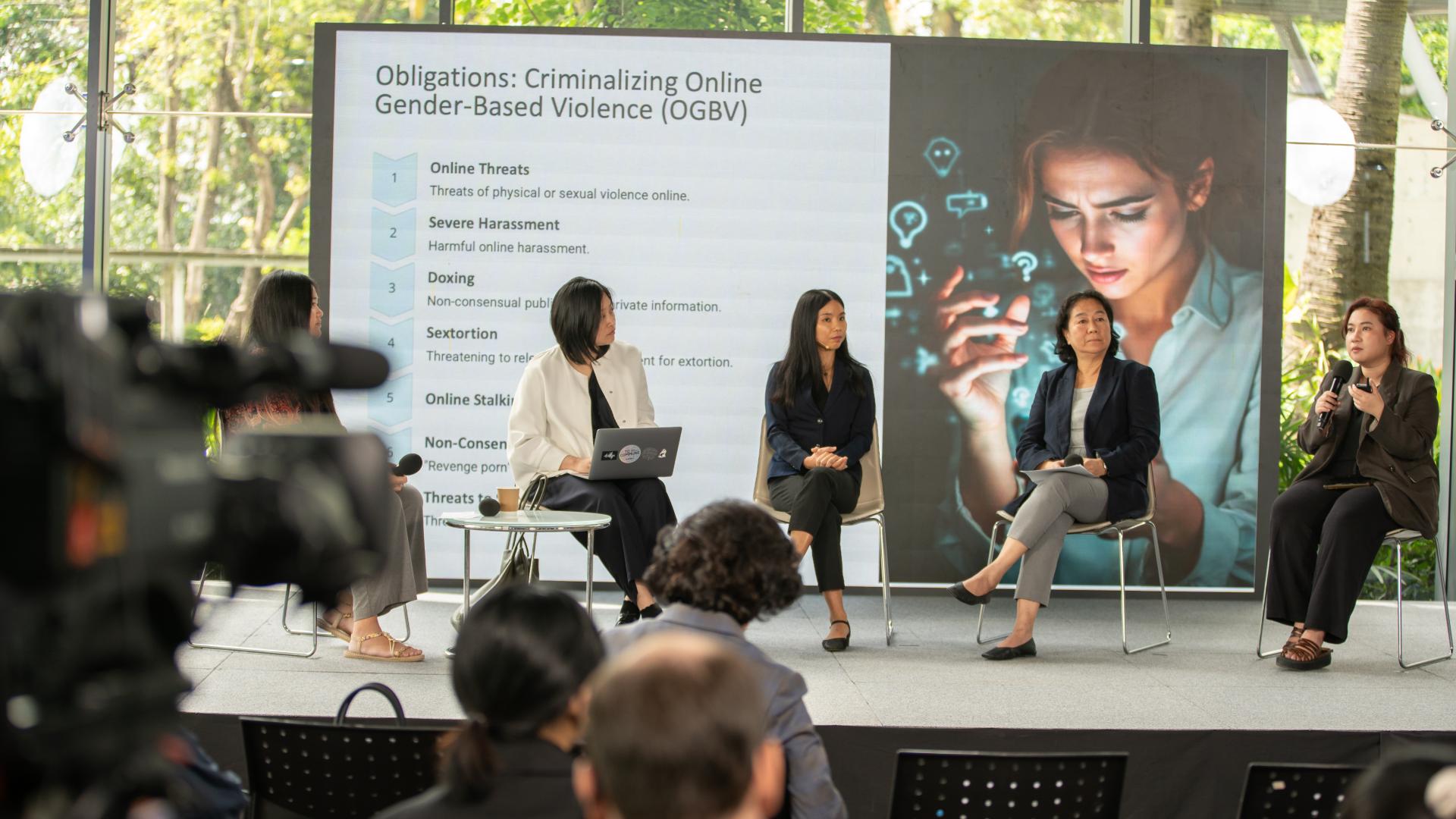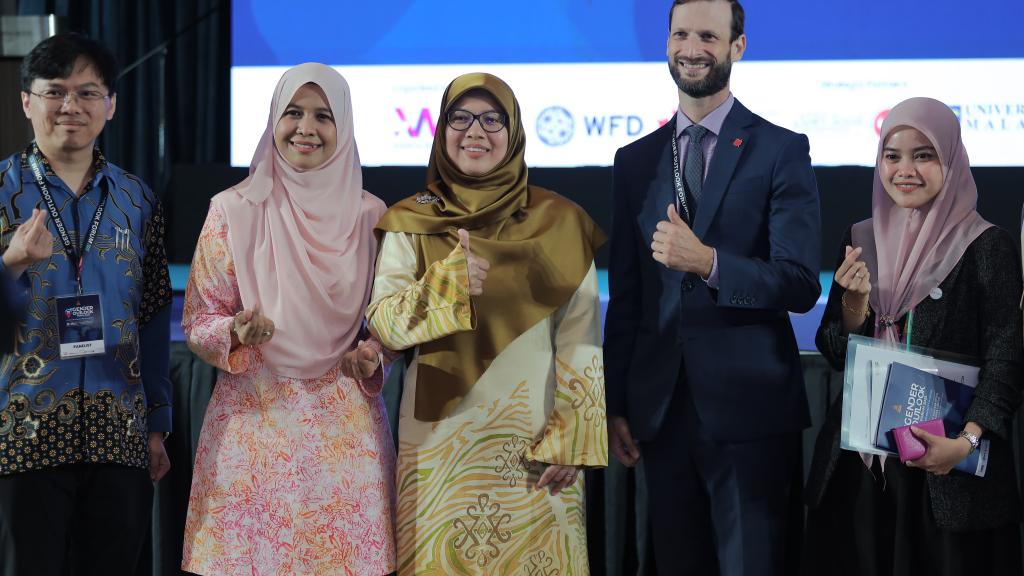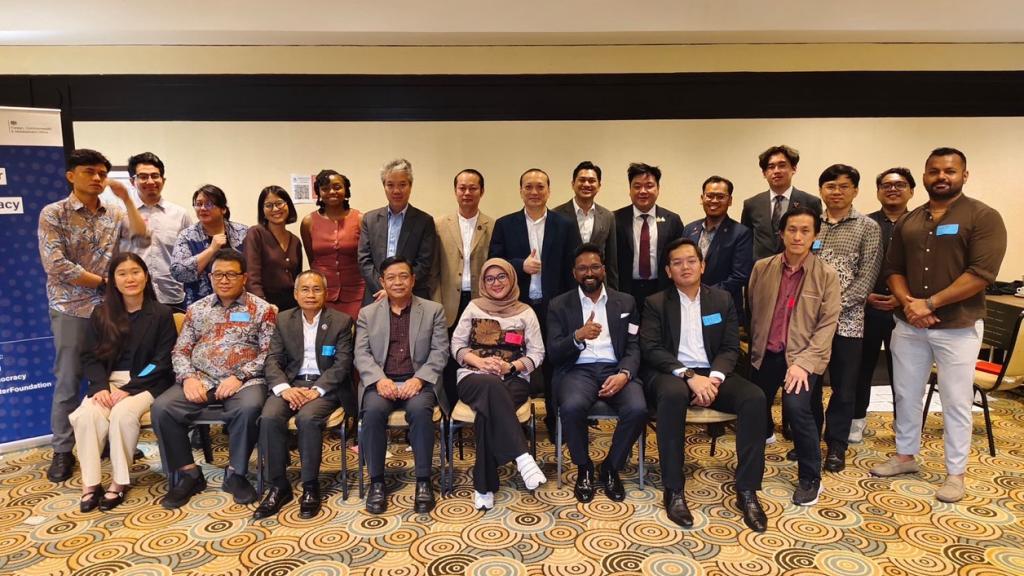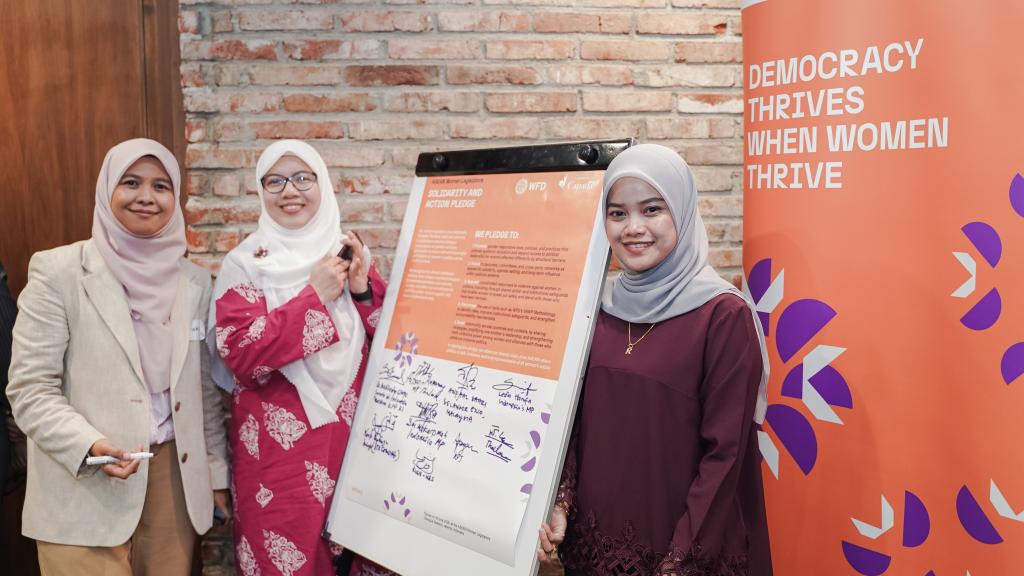Experts highlight joint responsibility of the state and tech companies to end online GBV in Thailand

Recent WFD research has revealed that women politicians in Thailand face various forms of online harassment, including defamation, mockery and sexual attacks. Online violence against women in politics often intensifies during election campaigns or parliamentary debates on contentious issues, with the intent to shift focus from their message and diminish their credibility. This type of violence affects both their professional roles and personal lives, significantly limiting women's political participation and distracting them from their public work.
Experts in Thailand noted that addressing and preventing online gender-based violence (GBV) is not only the government’s duty but also the responsibility of the private sector, as guided by international frameworks such as the UN Guiding Principles on Business and Human Rights (UNGPs).
WFD, Cofact Thailand, and Decode.plus brought together experts in digital rights, international laws, and activists combatting tech-facilitated gender-based violence to discuss challenges and solutions to address and prevent this issue in digital spaces. The seminar titled Digital Duty: Tech vs. Online Violence Against Women in Politics took place on 10 June at Thai PBS Television Station in Bangkok.
During the discussion, the panelists identified two key stakeholders who could tackle these challenges: the state and tech companies.
Digital duty: How state and tech companies can combat online GBV
The panelists noted that the state has an obligation to ensure that the country’s legal system protects human rights. Saijai Liangpunsakul, the founder of StopOnlineHarm.org, called for specific laws that make online gender-based harassment a criminal offence and establish clear responsibilities for tech platforms where such harassment occurs. These laws should apply across borders, he argued, reflecting the international nature of online platforms, to prevent situations where victims have no legal recourse while perpetrators escape consequences.
The experts also agreed that technology companies must take greater responsibility for preventing harassment on their platforms. This could include implementing strong zero-tolerance policies, building digital safety tools into their platforms, and creating alert systems for quick responses to harmful content. Additionally, tech companies should develop effective monitoring and reporting systems that allow users and third parties to flag problematic content, fostering collaboration between government, businesses and civil society. Participants particularly emphasised the need for special protections for women in vulnerable groups or high-profile positions who face increased risk.
Role of WFD’s ASEAN Women’s Political Leadership programme
The seminar was organised as part of WFD’s ASEAN Women's Political Leadership programme, which operates in Thailand, Laos, Indonesia, and Malaysia. It highlights WFD’s efforts to combat online gender-based violence against women politicians. Gender-based violence, rooted in legal and cultural systems, has expanded into online spaces with the rise of the digital era and political polarisation. Various actors play critical roles in these digital spaces, both positively and negatively. As part of the programme, the seminar focused on online gender-based violence targeting women in politics and explored how stakeholders, especially tech companies, can be held accountable for violations that occur on their platforms.
Photo credit: Decode Plus, Thai PBS



